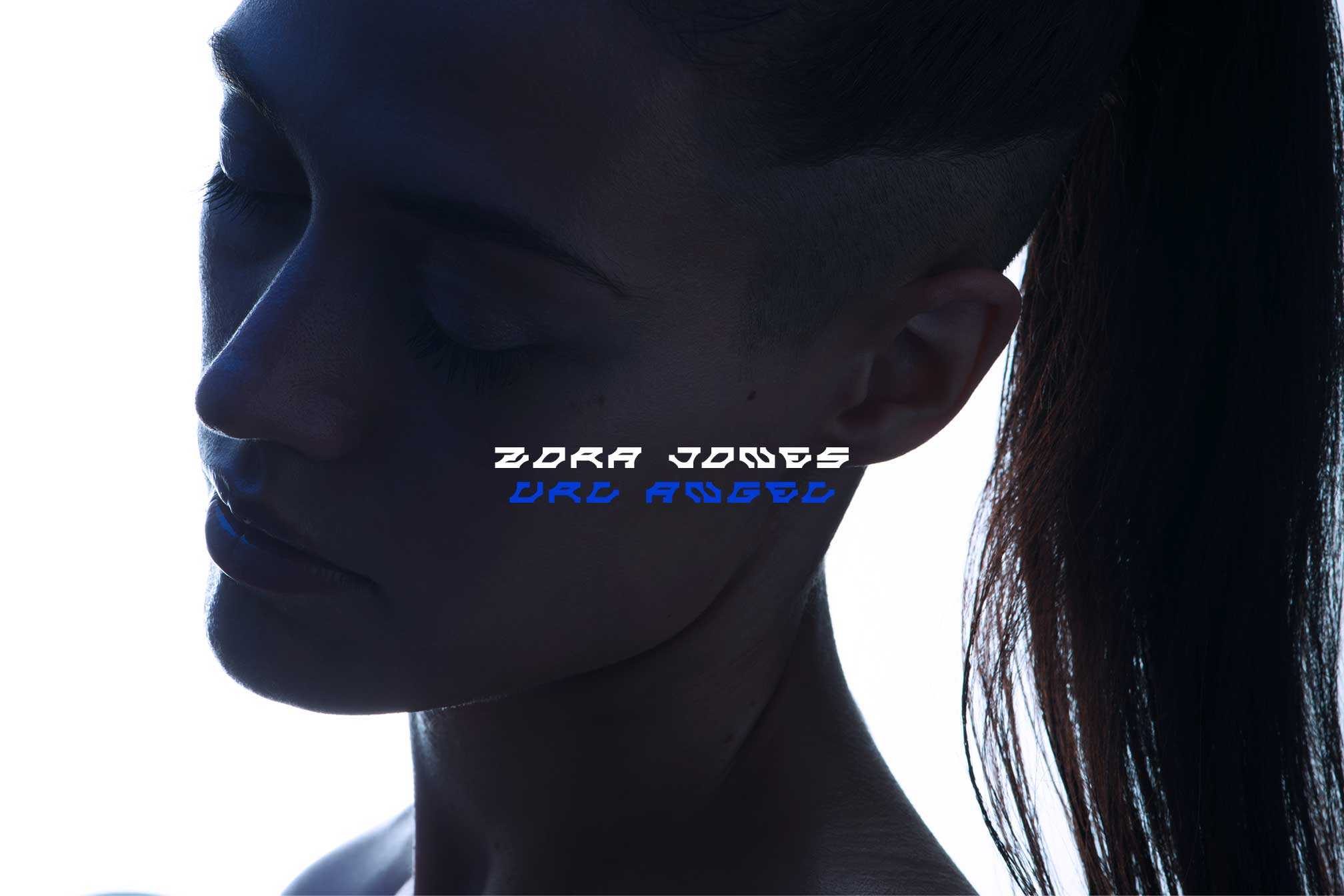 Features
Features
Zora Jones is leading dance music into virtual reality
Seb Wheeler talks to Zora Jones about her debut album ‘Ten Billion Angels’ and the virtual world she’s been building over her six-year career
At a moment when the world is more online than ever before, Zora Jones hasn’t really had to adapt to living life URL. The audio-visual artist from Austria has spent the last half decade building a singular sound and aesthetic that’s rendered in mind-fucking detail in the Fractal Fantasy portal she helms with partner-in-lab-experiments Sinjin Hawke. While mere mortals take their first steps into the metaverse, Jones ‘n Hawke have already unveiled a virtual event space, an augmented reality ‘artist’ who goes by the name of Zubotnik and an A/V concert titled dreamRooms(); in the last six months alone. When it comes to taking dance music into virtual reality, these two are leading the charge.
Read this next: Zora Jones & Sinjin Hawke In Session
Jones closed out an incredibly productive 2020 with her debut album, ‘Ten Billion Angels’, which contains the latest evolution of her flubberised club tracks, with their sleek surfaces and unpredictable angles of propulsion, and sees her rendered as an avatar overtly influenced by early 00s video games and CGI tentacle porn. Given her ability to remain two steps ahead, it’s no surprise that the LP nails the zeitgeist, a dose of euphoric, sci-fi bump ‘n grind that is redolent of IRL dancefloors and the virtual experiments that have replaced them (I watch dreamRooms(); during Unsound online with the lights off and my hairs standing on end as I slouch on my sofa) and is inspired by some of the vast, endless sub cultures and niches of The Internet such as the aforementioned tentacle porn, eroge video games and video game modding. Given Jones released her debut EP in 2015, it feels like the rest of us are only just catching up.
Below, Seb Wheeler talks to Zora Jones about her creative process, how she made ‘Ten Billion Angels’ and her virtual reality projects that are setting the blueprint for how dance music is presented online.
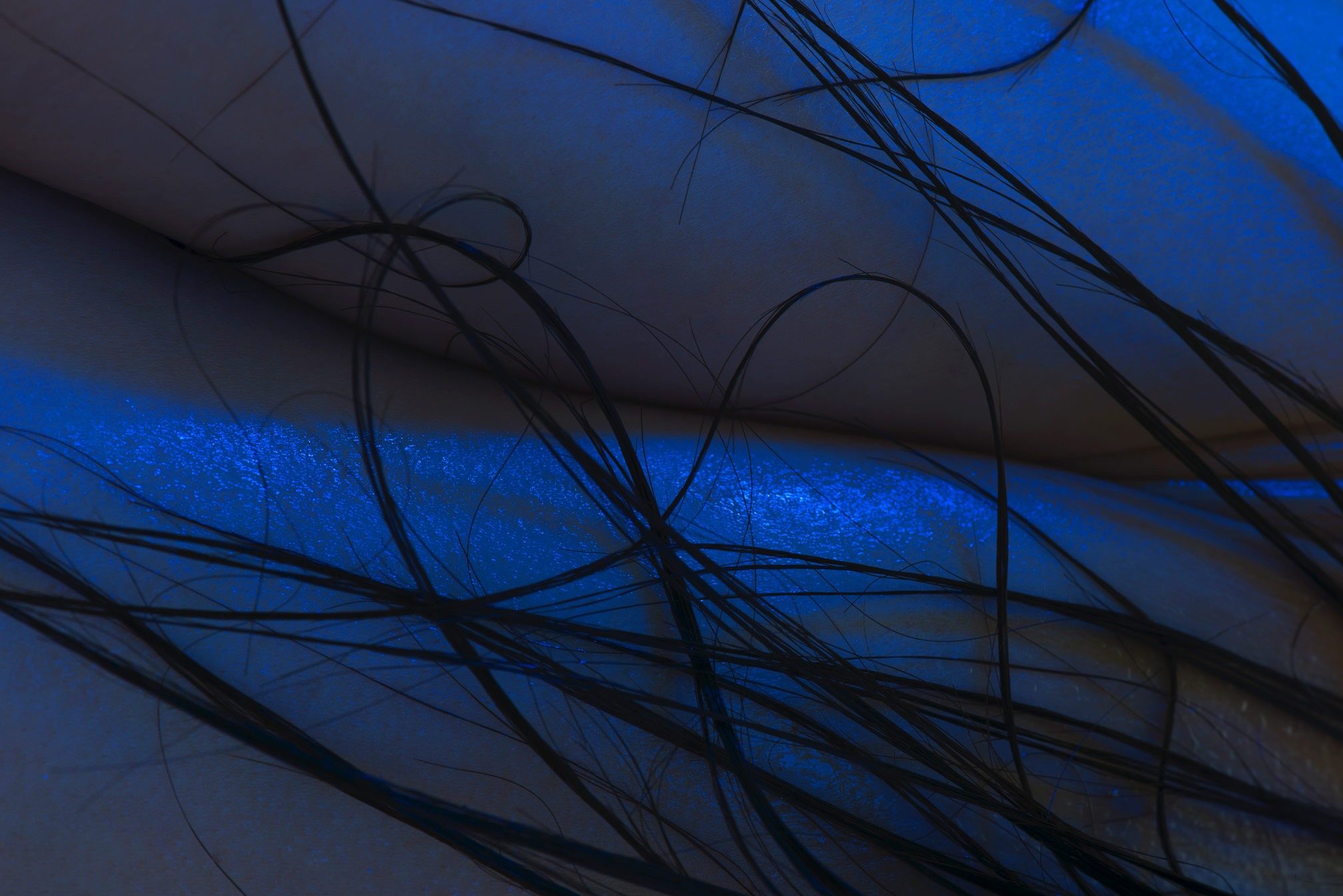
In the run up your EP ‘100 Ladies’ you famously wrote 100 tracks before releasing one. How did you prepare for ‘Ten Billion Angels’ and what does the title mean?
I essentially kept on making demos until the framework for an album crystallised, and then bundled those songs into a tracklist. At the beginning it was 35 songs which I then narrowed down.
The title is a bit of a story. We were in Beijing, walking around with friends at night and we came across this bright neon sign on a spa that was called 10 Billion Angels and I thought, wow, that’s such a crazy name, imagine all the things happening in there. The world of this spa really intrigued me.
I have this list of interesting phrases and words that I write down, and when I finished my album that title just popped out. It also fit the visual narrative I was developing which was made up of different scenarios of tentacle angels floating around the world.
You wrote the record while on tour. How did you carve out time to make music and also stay focused on your creative work?
You know, if you’re in between airports, flights or waiting for someone and have a few hours to kill then you can make a little demo here and there. It's super easy to make demos but finishing them is 75 per cent of the work, and I took my time with that. I did the whole finishing process mainly in Montreal in the last year or so.
So you don't mind making music like in transit?
Not at all. I'm super mobile with my setup. I just need my laptop and my headphones. I use my laptop keyboard if I want to play notes and I have a USB mic if I want to record vocals. It's pretty in the box, which I like. I'm lucky in that sense, because I think most people need a lot of gear or a perfect setup to get in the zone.
Read this next: Meet The 83rd, the music professor who makes radical Black club music
Tell us about the vocals on the album?
I got to a point where experimenting with samples and acapellas wasn’t enough, so I decided to get vocal coaching to learn how to use my own vocals. When you record your own vocals you also have the audio exactly how you like it, you don't have to chop anything or find a charismatic part of an acapella, which is especially good when you’re in a flow state. Also, using my vocal is something we did on tour anyway, so I thought why not use it in my own music as well?
The Fractal Fantasy stuff always seems so fully formed. But behind the scenes you're still trying to push yourself creatively.
I always try to learn new things and not get stuck on old ideas. If you get stuck on one thing, you stop growing, so it's good to push yourself into areas where you're not comfortable. I wasn't comfortable with my vocals in the beginning, now it's a lot better. Being uncomfortable makes you discover new techniques and forces you to be creative.
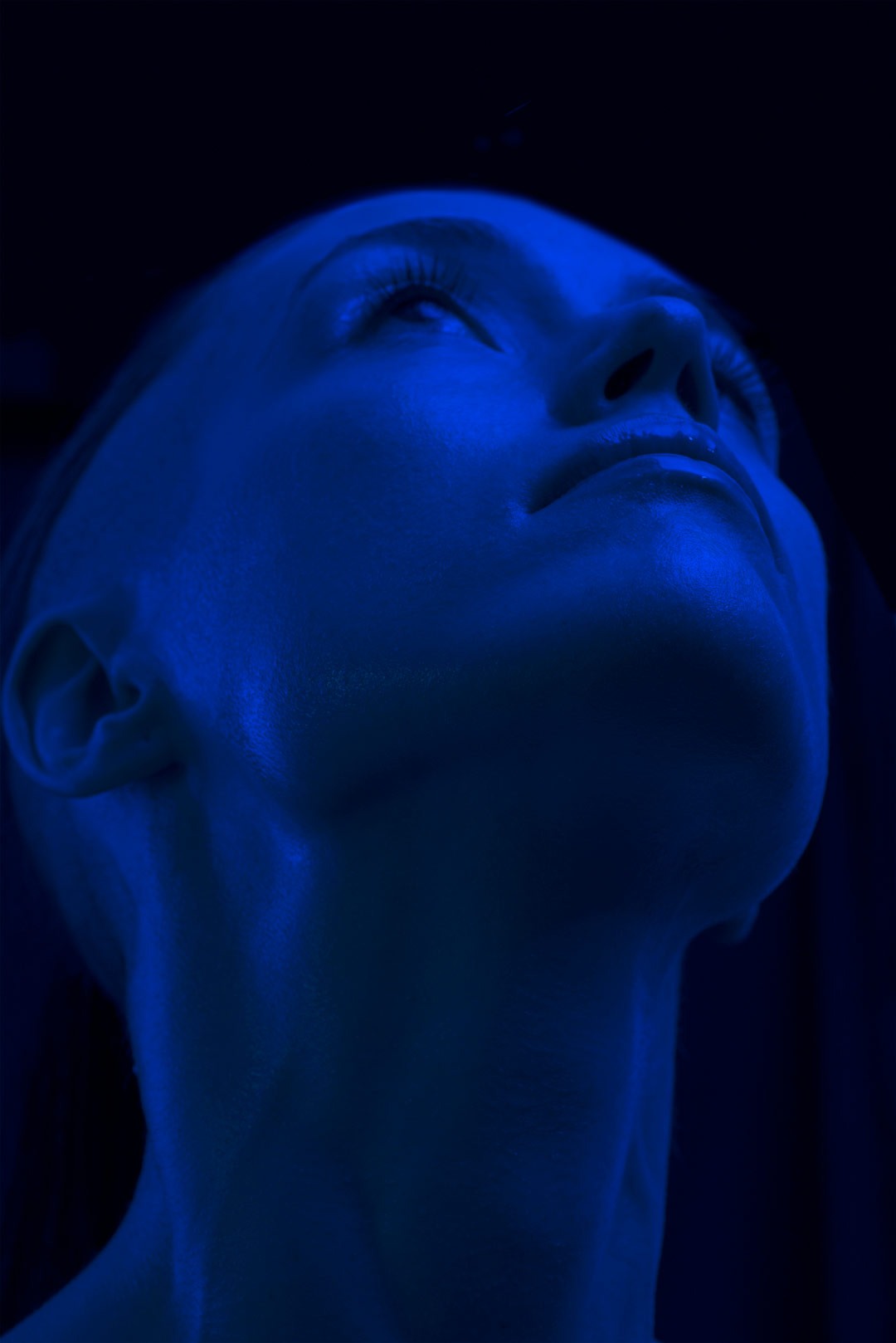
The album is inspired by eroge video games and CGI tentacle porn – what lead you to those niches and how do they influence ‘Ten Billion Angels’?
We're making a video game for Fractal Fantasy so Sinjin and I were researching game characters to see which ones we liked. Something we both liked were characters from an old video game called Dead Or Alive 2, and while looking into that we discovered a whole community fetishising the characters from that game. There's a massive world of people obsessed with it, and through that I learned about eroge video games and their modder communities. Modders take certain aspects of a game and modify it so it’s exactly how they want it to be. If the character doesn't have big enough boobs for example, they’ll make it have massive boobs. That's something I found really inspiring, because they're so obsessed with this fantasy that they absolutely need to make it a reality. It’s a dope creative motivation. If you're so obsessed with seeing a certain visual that you’re compelled to spend hundreds of hours ripping video game characters and editing their polygons and texture maps to make your fantasy a reality, that's very pure and I have a deep admiration for it.
How did you come across CGI tentacle porn?
Tentacle porn is pretty massive, if you’re into eroge video games it’s impossible to not stumble across it. It [developed because of] censorship that the Japanese government imposed on Manga. Manga artists started incorporating tentacles so they could depict penetration and get around the censorship. Tentacles are also quite phallic so that worked in their favour as well. Censoring or limitations often spur lots of creativity.
Read this next: DJ Lag In Session
You’ve rendered yourself as a CGI ‘tentacle queen’ and allowed this avatar to live out a tentacle fantasy on the album art and online portal. Why did you want to create this particular URL version of yourself?
We had the character ready. It took us a few months to model it in preparation for the video game that we're making, so I thought, why not use it for my album visuals too? I like the thought of having a representation of myself as an album visual.
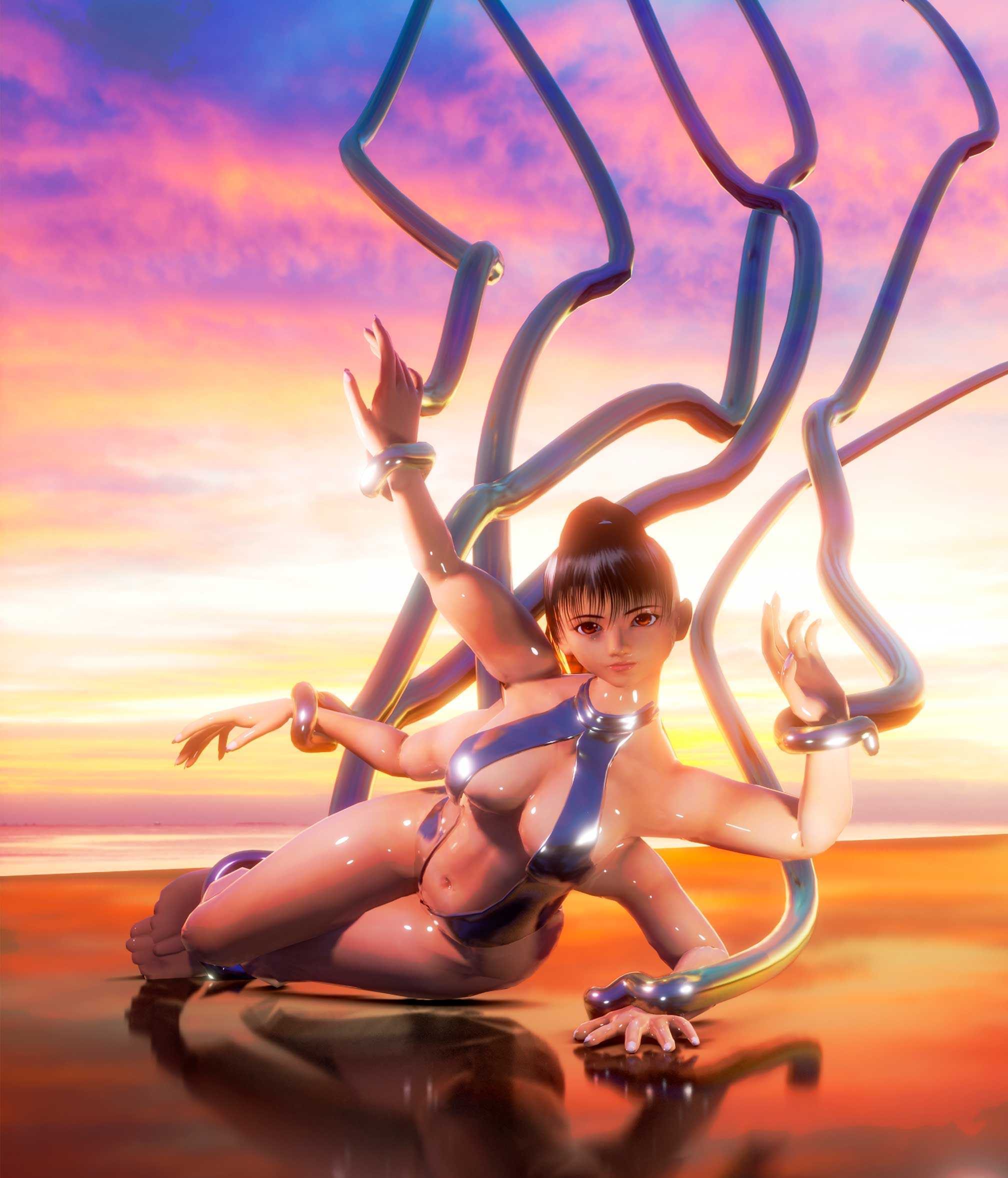
Fractal Fantasy has always focused on virtual reality. Recently you’ve taken things up a level with a new CGI live show for Unsound 2020, ZUBOTNIK and also your own VR club - can you tell us about these?
Unsound was actually really cool. We're working on a new A/V live show with a set of new gear, which brings more possibilities. For that particular performance we wanted to break out of what we can usually do and bring it into different environments, and have the experimentation process be very open. It was a very free performance that we could never do in clubs.
Zubotnik is something that can not be explained, it can only be experienced. Honestly, there's not much I can say right at this point, but it will be revealed soon.
We actually want to build Virtua IRL, in a real space, it just coincidentally came out during the pandemic so some people thought it was an online space. What is on fractalfantasy.net is a blueprint for what we think could be the ultimate community space and a blank canvas for meaningful interactions. Everything is designed to focus on interacting with each other and reduce time on things that take away from that, for example coat check or waiting at the bar. Once things open up a little we're probably going to test it in existing spaces. We'll build a very raw version of it and see what needs to be improved or what we like, and then slowly work on a more permanent installation. It's gonna be fun.
Fractal Fantasy’s virtual reality presence has always been really developed. When did you and Sinjin start thinking in that way?
That probably comes from both of us being super interested in new technologies and trying to learn about them. A lot of processes are improved by new technologies. For example, I'm working on a small fashion collection with a friend of mine, completely online. I’m in Montreal and he’s in Barcelona. We’re using 3d software to design the pieces and even do the first samples. It's great. Normally if you want to create a sample, you have to sew it five or six times until you’re happy with it, which takes a long time and is expensive and exhausting. But through new technologies, you can improve this process saving both time and money.
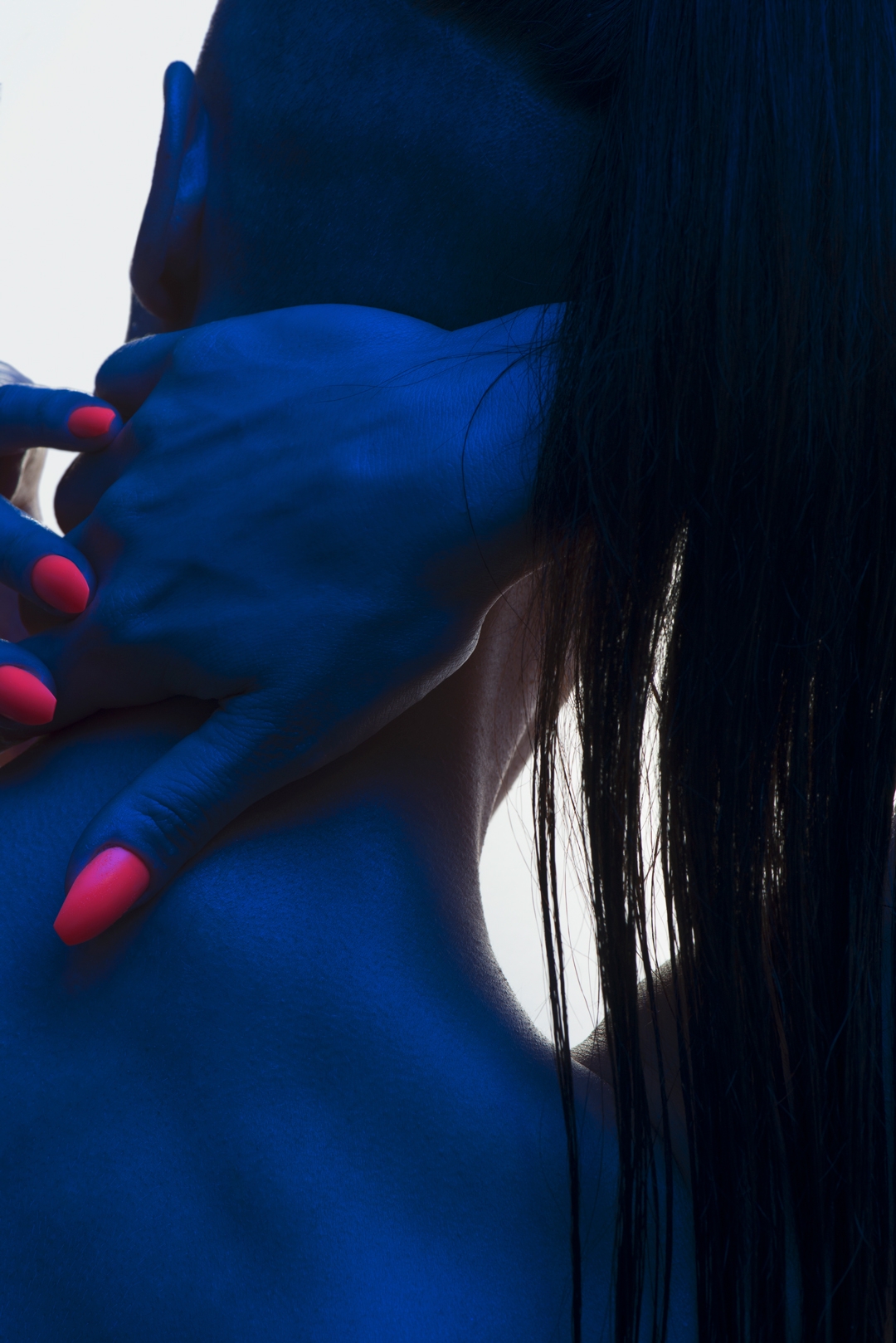
You’ve referenced psychedelics in your music, notably on ‘Psilocybin’ – do you use them for your creativity or part of your lifestyle?
I really enjoy learning about things through psychedelics. They're all a bit different, for example to me mushrooms are like a reset of everything, and they heighten your senses. At the moment they’re fun because I'm fairly happy, but if you're not in such a good place, they can make you go through difficult things. Most of the time you come out better at the other end though, so it's a learning experience and almost like therapy.
DMT is crazy. You realise so many things about yourself and everything around you that you've never noticed before, as it gives you knowledge and connectivity to your surroundings that you never experienced before. Again it's pretty therapeutic, not always easy. It’s super interesting to me.
Read this next: The magic mushroom renaissance
Fractal Fantasy is at a point where it’s a full audio/visual creative studio. What advice would you give to young artists looking to get to the same artistic position as you and Sinjin?
Focus on making the greatest thing that you could ever make. That's all you need to do. Everything else kind of comes together. Even things like marketing yourself, if you have something great going on, it will grow naturally and people will find out about it. So focus on your craft, get really good at what you do, and spend time on the details. Make sure everything you release is finished and that you absolutely love it. That's it. That's the secret sauce.


